Let’s Talk About Men Who Don’t Really Feel Sexually Attracted
Pratisandhi interviewed Dr. Pragati Singh on the prevalence of asexuality and asexual men. She is a Medical graduate from Maulana Azad Medical College, Delhi, and an SRHR Consultant. She is the founder of Indian Aces, an initiative that started as a community for aces (asexual people) and now works on themes across gender and sexuality. Dr. Singh was featured on BBC’s 100 Women list, 2019, for her efforts towards discourses on reproductive health and sexual rights. She is currently a member of the Board of Advisors at Just A Girl Inc. and is an Ambassador for the American Sexual Health Organization. Let’s hear what she has to say about asexuality and asexual men!
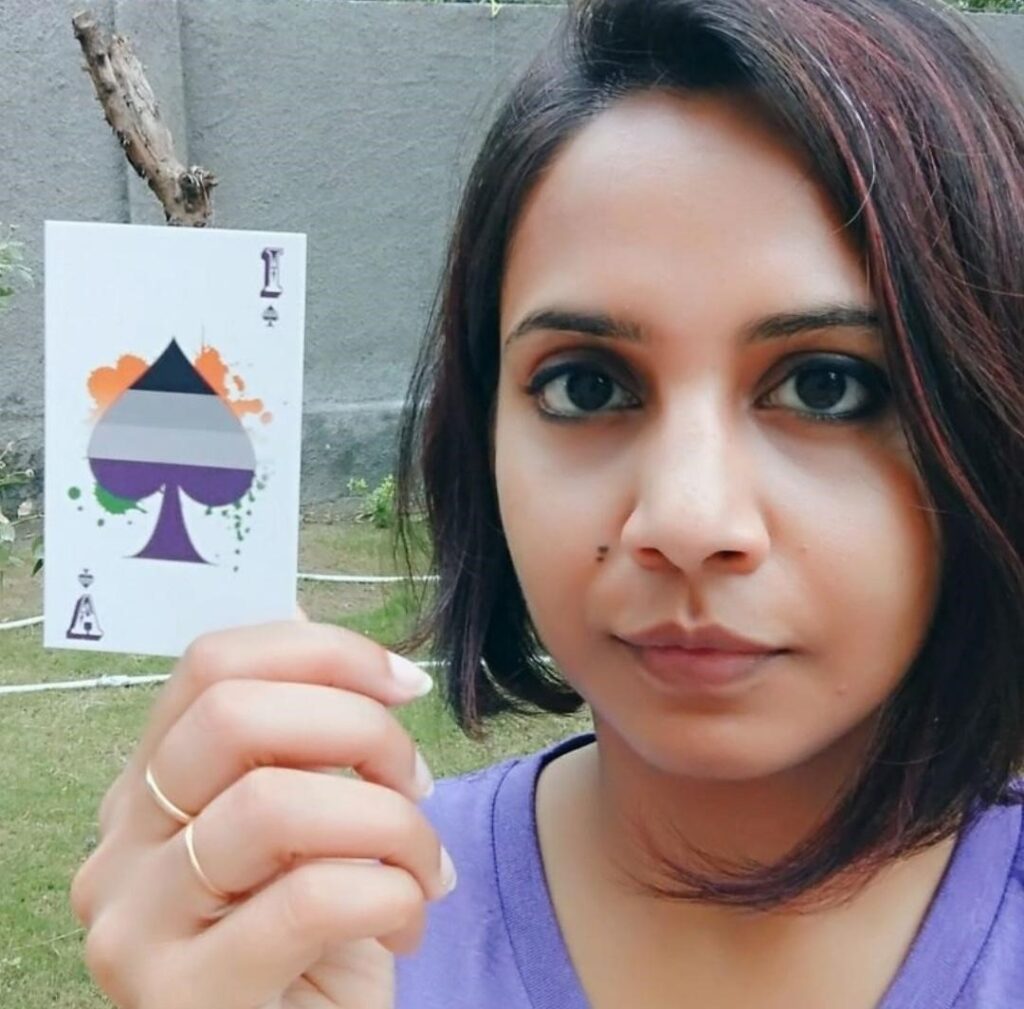
It is very delightful to know that you run Indian Aces, a community for the LGBTQIA+. Could you please share your inspiration behind this?
Dr. Pragati – Well, in Indian Aces, Aces is the short form for asexual people. And the reason why I decided to get started with it is that I kept looking for a community for aces for many, many months. I was then convinced that I could not find one, but it surely has to exist. So I kept waiting and looked for it. Eventually, I realized that there really wasn’t such a community. There was just nothing from India on asexuality then – I am talking about 2013.
So while I was still looking for a community, I met with a couple of people who were also asexual or on the spectrum and searched for a community. Then I started a Facebook page and initially posted only memes to see where it goes. I didn’t have plans to make it a national, in fact, an international movement. I never thought I’d become so dedicated to this at one point. So that’s how it started! And 7 years later, it has become something much bigger and much more important to the community and me.
How are asexual and agender different?
Dr. Pragati – They are drastically different concepts. Asexuality has got to do with sexual attraction, and that’s it. Beyond that, you could belong to any gender and still be asexual. And agender has got nothing to do with sexual orientation or sexual attraction. It’s got to do with one’s gender identity and refers to someone who has no gender identity or is gender-neutral.
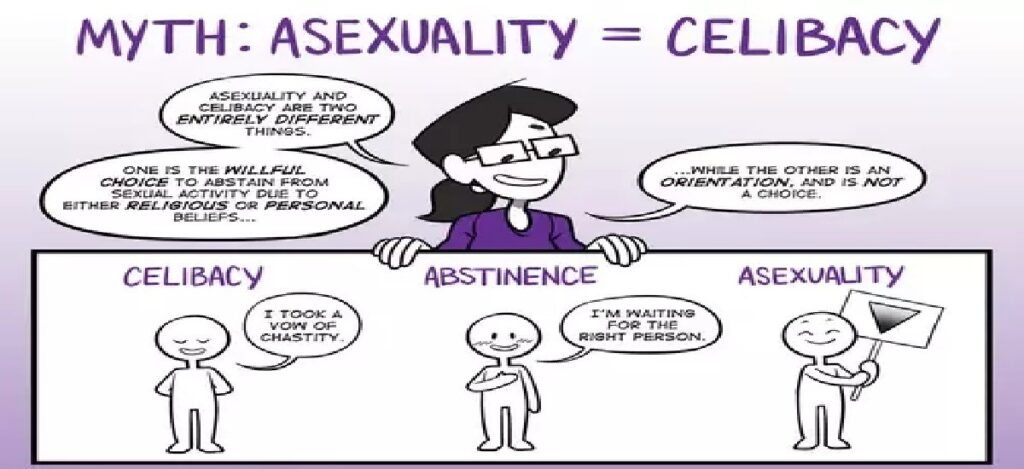
One myth about asexuality you definitely want to break?
Dr. Pragati – That asexuality means the person doesn’t want to have sex! That is the biggest myth and the biggest misconception. And I have, for the past 7 years, been trying to bust it. But, unfortunately, sometimes, there are people who themselves say that they are asexual because they don’t want to have sex. It is because they themselves are not well-informed or are ill-informed. Also, they don’t have a vocabulary beyond the word ‘asexuality.’ They might not want to have sex for a hundred different reasons, but that is not what makes someone asexual. That isn’t what asexuality is and it will never be so.
“Since men are seen as people who always want sex, the partners don’t explore the option of men being asexual people.”
As you have rightly pointed out, people lack the vocabulary used in the case of asexuality. Could you please talk about the orientations that fall under the spectrum of asexuality?
Dr. Pragati – Asexuality, like any other identity, has a diverse variety within it. One person’s homosexuality could be different from another’s. For example, one might be homosexual and could have never had sex. On the other hand, there could be a homosexual person who could have had many sexual partners. Also, one homosexual person might not be into sex while another might want to have sex. Similarly, there are many such variations in asexuality as well, with the only common definition being that asexual people aren’t sexually attracted to others.
(Listing them out for easier understanding)
- Abrosexual- People whose orientation fluctuates between various orientations
- Autochorissexual/Aegosexual- People who experience arousal from sexual activities that they are not involved in (reading erotica, watching porn, fantasizing or masturbating, and the like)
- Apothisexual- Someone who is an asexual person and is sex-repulsed
- Culposexual- People who don’t experience sexual attraction but are interested in sexual relationships
- Demisexual– people who get sexually attracted to someone only after emotional bonding
- Fraysexual- People whose sexual attraction fades after meeting someone and is the opposite of demisexuality
- Graysexual- People who get sexually attracted very rarely or/and in specific situations
- Lithosexual- People who express sexual attraction but don’t want it to be reciprocated
- Placiosexual- People who want to have sexual relationships but are okay even if not reciprocated (it is about action and not attraction)
Also, asexual people who involve in sexual relationships are said to be sex-positive asexuals. While sex-repulsive asexuals are those asexual people who don’t involve in sexual relationships.
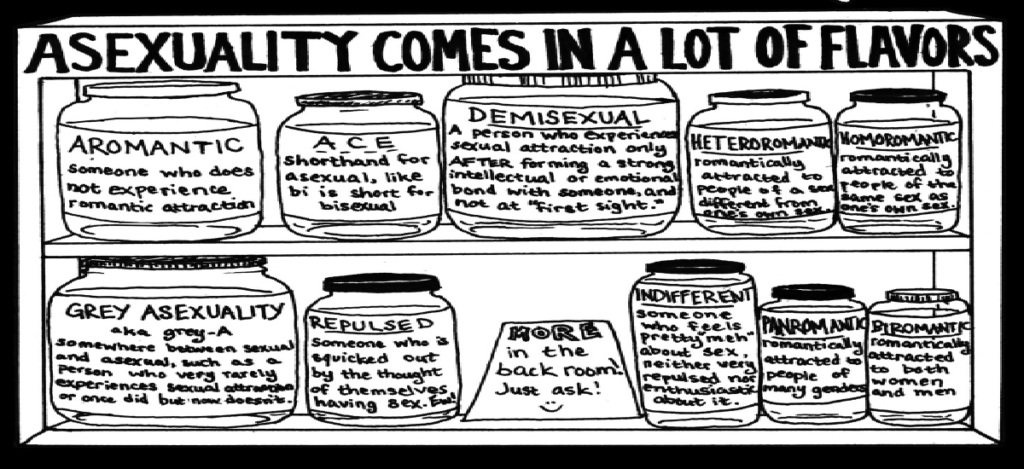
What, according to you, are the major problems faced by asexual people, especially men?
Dr. Pragati – I think the major problem is just helping other people understand what they are trying to say. One, it is tiring – how many times would you go to a person and explain to them about asexuality, how you feel, and how your life experience has been. Secondly, the concept is difficult for people to understand. So it is difficult for an asexual person to go about and explain its nuances every time they have to meet a new person. Conveying the message about their own identity is a challenge.
Another issue is that asexual people need to ensure the other person doesn’t take it personally, especially in the case of asexual men. Consider an asexual man who is starting to date, someone. When the man says they aren’t really sexually attracted, the latter might assume something is lacking in them. They assume that this is the reason why the man is not very interested. But in reality, what the asexual person meant to say is that they don’t feel sexual attraction in general. Especially since men are seen as people who always want sex, the partners don’t explore the option of men being asexual people. From my experience, I have seen that people in the community really struggle with these two things.
In this context, could you talk about asexual men in particular – since men are stereotyped to have always been lustful human beings?
Dr. Pragati – Yes, the stereotype that asexual men exist, persists. In most research and surveys on sexual affinity, there seems to be an imbalance with woman making up a major part of the asexual community. And men are definitely in the minority group. Nobody can really pinpoint why this is so, and many hypotheses are surrounding this. But I think it is safe to say that a big contributor to this might be the simple fact that it might be harder for men to come out to themselves as asexual people and then come out to others. Both these things are required of them to show up on a survey.
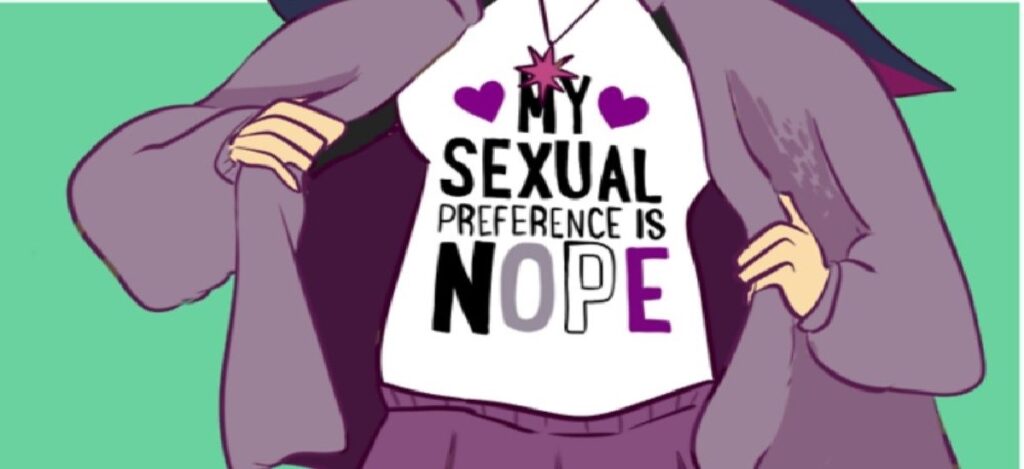
There is a lack of understanding about asexual people. So there surely would have been many people who have been shamed for not being sexually attracted to people. Would you mind sharing the story of one such man who has had a hard time because he was an asexual person?
Dr. Pragati – I was at an award function in Bangalore a long time ago. I gave a short speech after I was presented with the award. So I talked about asexuality, the work I am doing, and the impact of asexuality on people and relationships. A man was looking at me from a distance, leaning against the door – he was probably in his late fifties or early sixties. And typically, after an event ends, people come up to you, congratulate and talk, right? So there were a lot of people around me and talking to me. This man was still standing there and just looking at me. It looked like he wanted to talk to me but was waiting for others to disperse.
Just as expected, once everybody had moved away, he came up to me and made small talk. Soon, he got more comfortable and shared his personal story. He told me that for decades he had been living alone. He was once married, but his wife left him, and so did his children.
This was because he was an asexual person, and he had never known that it was okay to be that way. So for decades together, he had lived a life feeling guilty about it – feeling damaged, broken, and abnormal. And the reason behind why his family left him was because he was ‘abnormal’ and because they thought he deserved this. So he lived for many, many years thinking he was a ‘damaged good’ and that he would never live a happy life, ever.
After listening to my speech for the first time, he told me that he was starting to feel okay with being an asexual person. After listening to my speech, he knew that there is something called asexuality, and he felt like he was listening to his own life story. He felt he was normal and that it is okay to be the way he is. His story moved me. I remember I was just smiling at him while I literally got goosebumps. That was a moment when I realized the importance of the work I was doing. I decided to not stop doing this as it means a lot to many people.
That’s such an unfortunate story. It has been ingrained in most people that getting sexually attracted to people is the only ‘normal.’ Also, men are taught about sex and are told that sex is essential. In this context, I’d like to know how kids could be taught about asexuality.
Dr. Pragati – I don’t think asexuality can be separately taught. You know, it is a part of the larger umbrella of sex education. I don’t see any conversations surrounding asexuality happening unless we normalize sex education in the first place. This has to be step one since it is impossible to talk about asexuality in a vacuum. And the second step is that – when we deliver Comprehensive Sexuality Education (CSE), asexuality should also become a part of that.
“Statements like ‘we are all sexual beings,’ ‘all of us need a partner,’ ‘all of us need to have children,’ and ‘sex is a basic need for all of us,’ may be harmful and generalizing. Because some people might not feel so!”
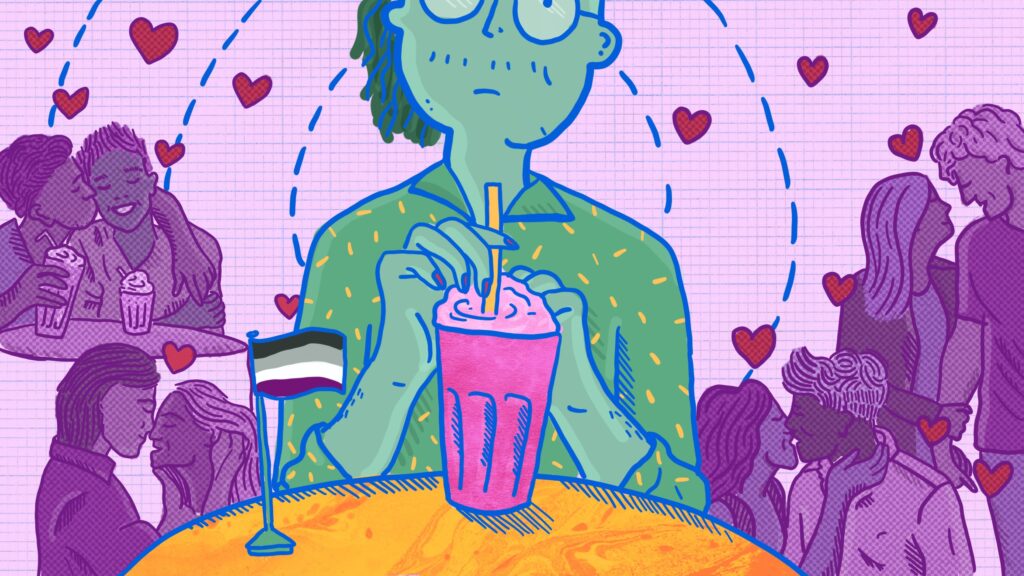
This is absolutely true. But when it comes to asexual people talking to their parents about their being asexual, the latter is more likely not to accept it. The concept of ‘sex being a basic need’ is enshrined in their minds. How can such parents be made to understand asexuality?
Dr. Pragati – Honestly speaking, my opinion on this topic is a little different. Of course, a young person can inspire and encourage their parents to study asexuality and educate themselves about the topic. But if the parents are not ready to do that much at the very least, I think it’s okay to give them space not to agree. It should be normalized for that person to think – okay, my parents are not ready to understand or agree to my identity, so I’ll just have to live this way. This is because it’s difficult to be happy with yourself if your happiness depends on someone else’s approval which they aren’t working for.
And if the parents are open towards it, of course, educate them by providing them with resources. But if the parent is not ready for that, at some point, the young person should put a foot down. They need to understand that their parents are not going to accept it. They need to move on and live their life for what it is. I am saying this because I know many people who have been trying to get their parents’ approval. They haven’t gotten it, and they will probably never get it. And to depend on it just means you are doing yourself a disservice. You are waiting for something that is probably never going to come. It is an unfortunate truth, especially in Indian society.
What is the difference between asexual and platonic? A lot of people assume both of them to be the same.
Dr. Pragati – Platonic is definitely not interchangeable with asexual. Asexual refers to someone who typically doesn’t experience sexual attraction regardless of their relationship status and romantic orientation. One’s relationship status and romantic orientation are used to determine whether someone is platonic or not. If someone is in a platonic relationship, their relationship might not have sexual intimacy or romantic intimacy, but that is upon the partners to decide. It is usually used to refer to two people who are in a non-sexual but intimate relationship. But asexuality and platonic have nothing in common.
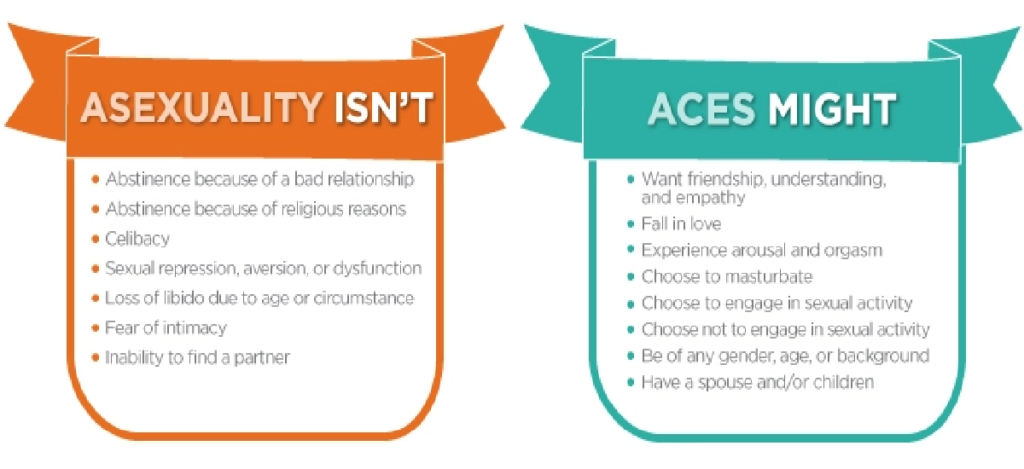
Finally, what suggestions would you give people to support their asexual friends better?
Dr. Pragati – Firstly, understand that notions such as ‘we are all sexual beings’ can be harmful and generalizing. Because some people might not be so! ‘All of us need a partner,’ again, might not be true for some people. ‘All of us need to have children,’ and ‘sex is a basic need for all of us’ aren’t necessarily true. So we take a lot of these concepts to be normal and make blanket statements. But they might not hold true to someone in the audience or your friend’s circle. So, be mindful of making any such statements since there could be ‘ifs’ and ‘buts.’ I personally just say “the majority of us” or “a lot of us” or “in my experience.”
Secondly, just let people be and evolve. It is possible that when we are sixteen or seventeen, we identify ourselves as something, and then later, we identify ourselves as something else. We are still exploring, learning, and figuring ourselves out. Give each other the time and space to evolve to settle for what feels the best for them. Don’t jump to any conclusions. It’s okay for people to take time and be confused. Nobody needs to hurry and put any labels on themselves or others. So, these are the two suggestions I’d give to people.
Graphic design by: Ruta Shelke
Author


5 thoughts on “Let’s Talk About Men Who Don’t Really Feel Sexually Attracted”
Pingback: 12 Less Known Facts About Asexual Men - Messy Relations
You have only empathized with asexual people..but haven’t told how to be in a marriage with an asexual person who doesn’t accept it and tries to look normal..while the partner suffers for her needs not being met. To the outside society they look normal but the spouse of the asexual person is suffering while the asexual person alone doesnt find anything missing
I’m married for a year and my husband has strict aversion towards sex. He refuses to go for treatment also. How will I meet my needs. I need help. Im untouched for a year. Im living with him like his roomate
You will take divorce and find someone sexual. As Asexuality is not a disease to be treated. It is permanent and it is his identity. You can’t force him
I married a asexual man and I feel like I was lied to from the beginning. We have been married for 36 years and if I had known this I would not have married him. I’m a ornament so his family and friends think he’s manly = used. That is a really bad feeling for me, and I’m just angry. After all the years of marriage he seems to think that this shouldn’t be a problem for me, I don’t understand. I have needs as a human and desire to be close to another person, he’s totally oblivious to me. We have had many discussions about this without any resolutions.